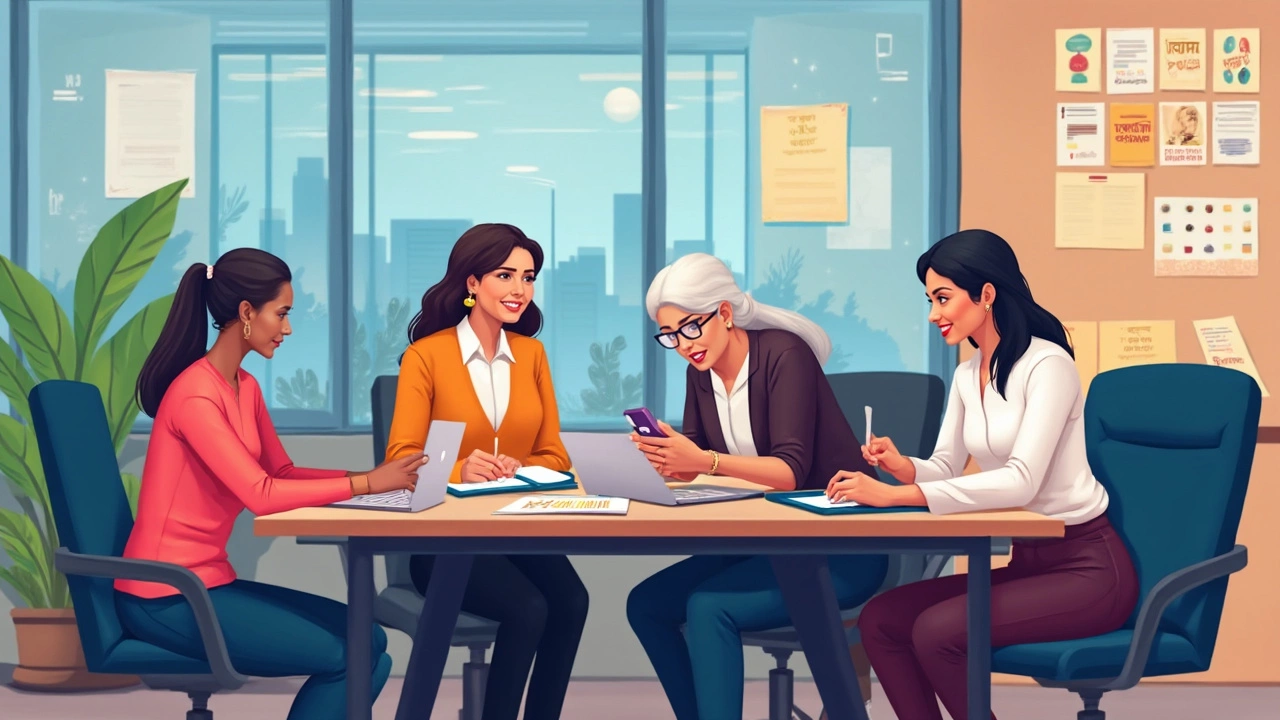
Ever felt stuck in a meeting because big words or math problems threw you off? That’s exactly where basic skills courses step in. They’re not about memorizing endless facts. Instead, they help you brush up on the stuff you use every single day—things like writing clear emails, solving simple numbers, or even understanding how to work a computer. Most people don’t realize just how far these basics go.
These courses aren’t only for students struggling in school. Maybe English isn’t your first language, or maybe you took a break from studying and now feel rusty. Tons of adults sign up for this kind of training. And trust me, nobody’s judging—everyone’s here to level up, no matter their starting point. That’s why you’ll see these courses offered everywhere from libraries to online platforms, sometimes even for free.
- What Are Basic Skills Courses?
- Why Are These Courses Important?
- Where and How Can You Take Them?
- Tips to Get the Most from Basic Skills Training
What Are Basic Skills Courses?
So, what actually makes up a basic skills course? At its core, this kind of course focuses on the must-have abilities that most jobs, schools, and even daily life expect you to know. Think of reading instructions, writing a simple email, understanding bills, or making sense of numbers on a receipt. If that feels basic, that’s the point—these are the building blocks for everything else you want to do.
The most common topics you’ll see covered include:
- Reading and writing (in plain English, not complex literature)
- Math (adding, subtracting, percentages—stuff you use in real life)
- Digital skills (using a computer, email, filling out online forms)
- Sometimes, basic science, communication, or work readiness
You’d be surprised at the range of people who take these courses. For example, a survey by the National Center for Education Statistics found that over 20% of American adults are below the basic skill level in math or reading. That’s tens of millions of people! Schools, adult education centers, and even some employers step in with tailored programs to fix that gap.
The table below shows a snapshot of the main topics most courses offer and the typical skills you get by the end:
| Course Topic | Simple Example Skill |
|---|---|
| Reading | Understand a news headline |
| Writing | Send a basic work email |
| Math | Calculate a grocery bill |
| Digital Literacy | Open and use an email account |
Most classes are hands-on and practical because nobody wants to just sit and listen. They’re designed so you can use what you learn right away, whether you’re looking for a job or just want to help your kid with homework. Honestly, these programs aren’t flashy, but they do offer one huge thing: confidence to handle daily challenges without stress.
Why Are These Courses Important?
If you ever felt insecure about reading instructions or doing quick calculations at work, you’re not alone. Basic skills courses knock down those barriers. It's not just about school grades—these skills help you keep up in real life, from following a recipe to sorting out your online banking. Employers are paying attention, too. According to a 2024 workforce report, over 70% of managers say employees with stronger core skills are more likely to get promoted.
Here's something even bigger: boosting your basics can directly impact your pay. People with solid reading, writing, and math skills make about 15% more money, on average, compared to folks who struggle in these areas. That’s according to a study run by the National Skills Coalition. On top of that, getting these fundamentals right can help you grab more opportunities and avoid mistakes—both at work and in life.
"Strong basic skills are the foundation of lifelong learning and success in the workplace." — OECD Skills Outlook, 2022
- Better job chances and higher earning potential
- More confidence in daily situations, like healthcare and shopping
- Improved problem-solving and decision-making
- Less stress when dealing with tech or paperwork
Take a look at some key differences in outcomes between adults with and without strong basic skills courses:
| Group | Average Annual Income | Employment Rate |
|---|---|---|
| With Basic Skills | $37,000 | 88% |
| Without Basic Skills | $32,000 | 75% |
See the jump? That’s why these courses aren’t just a nice extra—they really do change your career and day-to-day life.

Where and How Can You Take Them?
Getting started with basic skills courses is a lot easier than most people think. You’ll find these courses all over the place—public libraries, community colleges, online platforms, and adult education centers. In 2024, about 68% of adults who took a basic skills class in India did so online, using phones or laptops—way more convenient than sitting in a classroom every week.
Here’s where most folks sign up:
- Community centers: They often offer in-person classes for locals, sometimes for free or a very low fee. Great if you like working with a teacher face-to-face.
- Online learning platforms: Websites like Coursera, Khan Academy, and Udemy have beginner-level courses in things like basic math, grammar, and computer skills. Some are free; others might cost a small amount.
- Adult education programs: Many cities run adult literacy and numeracy classes, often held at government offices or special training centers. These usually have flexible timings, perfect for people with jobs or family commitments.
- Workplace training: Some employers bring in trainers to help employees brush up on basic skills, especially if it’s important for the job or for workplace safety.
Want to see how common each option is? Check out this quick overview:
| Type | Typical Cost | Online/In-person | Popularity (2024) |
|---|---|---|---|
| Community Center | Free to ₹1,000 | In-person | 22% |
| Online Platforms | Free to ₹3,000 | Online | 68% |
| Adult Ed Programs | Free to ₹500 | Both | 7% |
| Workplace Training | Free | In-person | 3% |
If you’re itching to start, the smart move is to first figure out what you want—do you like learning by yourself, or do you want personal help? Those who want control over pace tend to go for online courses, while people who value direct feedback usually pick in-person options. For anyone with a packed schedule or living far from a big city, online training makes the whole thing simple. Some platforms even give you certificates at the end, which can help you land a job or get a promotion.
Tips to Get the Most from Basic Skills Training
Getting value from a basic skills course isn’t just about showing up or logging in. These courses work best when you get hands-on and stay a bit curious. Here’s how to grab every advantage:
- Set one clear goal at a time. Maybe you want to write sharper emails or finally get percentages. Pick something you actually care about, so you’ll stay motivated.
- Practice outside the class. Try using new math tricks at the grocery store, or draft that work email a few times before sending it. The more you use your new skills for real stuff, the faster they stick.
- Ask questions every session. If you’re confused, chances are others are too. Most trainers love explaining things differently to help it click. Don’t just nod along if you’re lost.
- Connect with classmates. Study groups—even in online forums—can boost your progress. Teaching someone else what you just learned is one of the fastest ways to remember it yourself.
- Track your progress. Nothing feels better than seeing proof you’ve improved. Some programs even use quick before-and-after quizzes. Seeing your scores go up can be a huge motivator.
Sometimes, people worry they’re "too old" for this stuff, but that’s a myth. One UK-based survey found almost 27% of adults aged 35–54 had signed up for a skills course in the last two years. You’re literally never alone.
| Action | Impact Reported by Learners (%) |
|---|---|
| Regular practice outside class | 74% |
| Learning with peers | 58% |
| Setting short-term goals | 69% |
Don’t just go through the motions—be active about it. Treat every mistake as a step toward getting better. And if you hit a wall, switch up your strategy instead of giving up. The basics lay the ground for anything you want to learn next.
